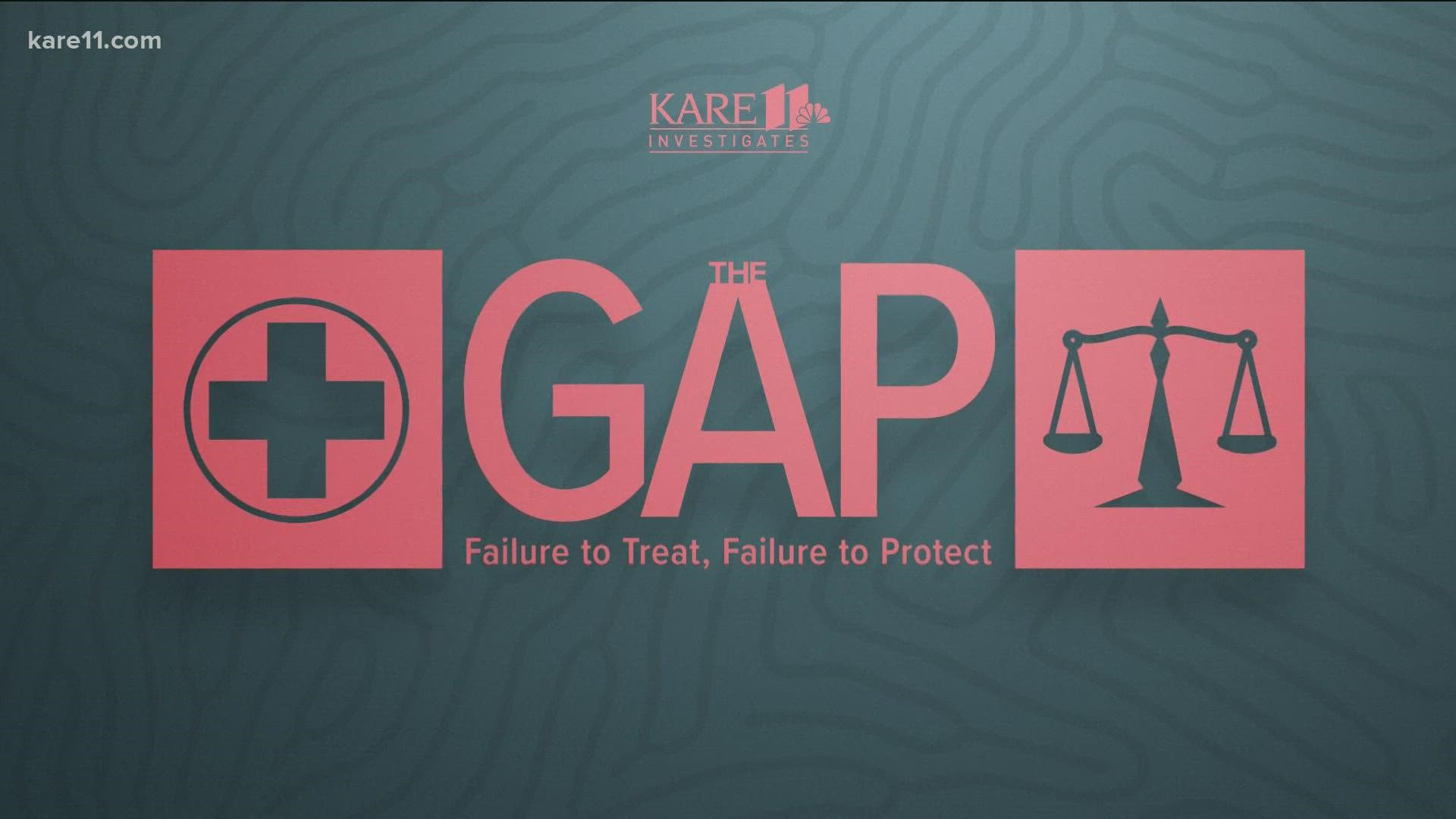ST PAUL, Minn. — Two top GOP House members responded to a KARE 11 investigation Friday saying they want the state’s Department of Human Services to explain how a dangerous and mentally ill man committed to the agency for treatment went home instead.
KARE 11 uncovered how Malcolm Lessley went untreated for months before video shows him randomly shooting and killing Tommie McCoy, an innocent man who just happened to be riding a bus in Minneapolis last February.
“We are deeply troubled by news reports that the Department of Human Services failed to account for a dangerous individual who was ordered civilly committed to a DHS facility but was allowed to walk free and ultimately went on to kill an innocent person on a Metro Transit bus,” Rep. Tony Albright (R-Prior Lake) and Rep. Peggy Scott (R-Andover) said in a statement. “Even worse, the agency's response to this news report was to try to evade responsibility and point fingers elsewhere.”
KARE 11’s story about Lessley was the latest in the station’s series, “The Gap: Failure to treat, Failure to protect,” which has exposed catastrophic failures in Minnesota’s criminal justice and mental health systems. Mentally ill defendants like Lessley are considered “gap cases” in Minnesota, charged with crimes, but then found incompetent to stand trial and sent back into the community without appropriate treatment or supervision.
Dozens of those defendants have gone on to re-offend, often in tragic ways, KARE 11 has found.
Lessley was charged in 2019 for pulling a gun on a cab driver, but was found mentally incompetent to stand trial in the case. A judge ordered DHS to treat him and hold him in a “safe and secure” facility. He walked out of court and went home with his mother instead, KARE 11 revealed.
When KARE 11 asked DHS about the case, an agency spokesman responded, “Some individuals are committed to DHS and neither the county nor the court ever make DHS aware of the commitment.”
That drew a call for reform from Albright and Scott.
“If there are not proper processes in place to ensure that DHS is alerted when individuals are civilly committed, that needs to be addressed immediately,” they wrote.
KARE 11 also revealed how the Hennepin County judge in Lessley’s case, Phil Carruthers, ordered any transportation for Lessley to be provided by the Hennepin County Sheriff. But a sheriff spokesman said the department never received an order to transport Lessley.
Though he was living with his mother at an address listed in court records, Lessley’s social workers filed a report telling Carruthers that Lessley had gone missing. Despite this, records show no order from Carruthers to bring Lessley into custody.
“We also hope that the courts and the Hennepin County Sheriff's Office will review what went wrong in this case, and why so many government agencies failed in their duty to protect the safety of the public from someone legally deemed physically dangerous,” the House lawmakers said.
They said they called for a meeting with DHS Commissioner Jodi Harpstead to understand what wrong in Lessley’s case.
In response, Deputy DHS Commissioner Chuck Johnson issued a statement Friday afternoon, writing: "We welcome any opportunity to work with the Legislature to improve the state’s mental health system.”
Albright and Scott are the latest lawmakers to call for reforms following KARE 11's investigation into gap cases. GOP State Sen. Jim Abeler held a hearing earlier this month, saying the cases “presents in my mind a public safety risk, but as well as concerns for individuals.”

